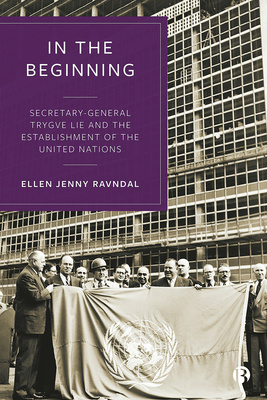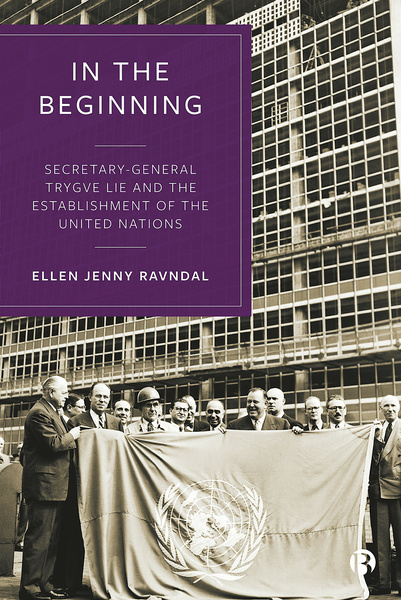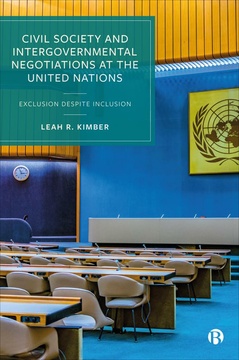In the Beginning
Secretary-General Trygve Lie and the Establishment of the United Nations
By Ellen J. Ravndal
Published
12 Mar 2024Page count
204 pagesISBN
978-1529211795Imprint
Bristol University PressPublished
24 Jan 2023Page count
204 pagesISBN
978-1529210439Dimensions
234 x 156 mmImprint
Bristol University PressPublished
24 Jan 2023Page count
204 pagesISBN
978-1529210453Imprint
Bristol University PressPublished
24 Jan 2023Page count
204 pagesISBN
978-1529210453Imprint
Bristol University PressThis book reviews the formative years of the United Nations (UN) under its first Secretary-General Trygve Lie.
This welcome appraisal shows how the foundations for an expanded secretary-general role were laid during this period, and that Lie’s contribution was greater than has later been acknowledged. The interplay of crisis decision-making, institutional constraints and the individuals involved thus built the foundations for the UN organization we know today.
Addressing important wider questions of IGO creation, governance and autonomy, this is an incisive account of how the UN moved from paper to practice under Lie.
"Based on meticulous research, this book breaks new ground in our understanding of United Nations history and the key precedents set by its first Secretary-General.” Sam Daws, University of Oxford
Ellen J. Ravndal, FHEA, is an Associate Professor in Political Science in the Department of Media and Social Science at the University of Stavanger, Norway.
Introduction
1 Setting the Stage: The Creation of the UN and Expectations for the Role of the UN Secretary-General
2 Establishing Precedents: The Iranian Crisis, UN membership, and the Greek Civil War, 1946
3 Urging Forceful Action: ‘The Palestine Problem’ and Management of Regional Conflicts, 1947–49
4 Building Bridges: The Cold War from Berlin to Korea, 1947–50
5 Advocating Global Interests: Trygve Lie’s Peace Plan, 1950
6 Administering the International: The International Civil Service and the UN Secretariat, 1946–53
Conclusion
Appendix: UN Charter, Chapter XV: The Secretariat












